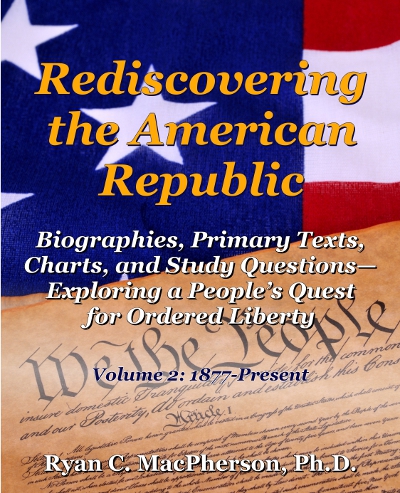Poverty would not be a perennial problem if it had an easy solution. It turns out, part of the challenge is that the problem cannot be reduced to poverty. Rather, people face poverties, plural. R. C. Sproul, Jr., addresses four distinct kinds in Biblical Economics: A Common Sense Guide to Our Daily Bread. To wit:
- Poverty Caused by Slothfulness
- Poverty Caused by Calamity
- Poverty Caused by Exploitation
- Poverty Caused by Personal Sacrifice
On the surface, these four poverties may appear all the same: poor on assets, poor on cash flow, limited opportunities, low standard of living, perhaps dangerously so. However, surface-level appearances can be deceiving, and understanding the distinct cause of each kind of poverty provides the key toward ameliorating the plight of the poor in a sustainable manner. Here are some reflections I had while reading Sproul's book.
Poverty Caused by Slothfulness
(In case you haven't even heard the term "sloth" in recent years, we are talking about being lazy, about refusing to find a helping hand at the end of your own arm.)
Capt. John Smith warned the settlers at Jamestown against slothfulness. He also had a ready solution: "If a man will not work, neither shall he eat" (2 Thessalonians 3:10). This discipline saved the colony, and the rest, as they say, is America's history.
Distributing goods to people who have been made poor by their own slothfulness will help them for the moment, but not in a sustainable manner. In fact, in the long term it may harm them, by confirming their own self-destructive pattern of slothfulness.
Poverty Caused by Calamity
Another major cause of poverty occurs beyond people's control. Calamity strikes in many forms: drought, earthquake, fire, death of a breadwinner, etc. Depending upon the severity, calamity can cripple an economy for generations, whether for a family or for an entire society.
People facing this kind of poverty need outside help. People not facing this kind of calamity have the blessed opportunity to serve as God's agents for help. In which category are you?
When it comes to one of the most common forms of calamity in America today, unexpected illness compounded by insurmountable medical bills, you likely will find yourself in both categories: able to give, but also needing to receive. For this reason, I appreciate medical cost-sharing ministries, like Samaritan Ministries. Families pledge to share a certain amount each month with those in need, and also receive from others when they have needs themselves. For most participants, it is not an equal exchange, but rather a generous exchange: members are so eager to help others that they often volunteer to give beyond their monthly pledge in order to assist people with special needs. In the wake of the Affordable Care Act, ministries like Samaritan are demonstrating that generosity provides a better antidote to poverty than coercive government regulation ever could.
Poverty Caused by Exploitation
Unjust prices, unjust wages, inflationary fiscal policies, and old-fashioned highway robbery have something in common. One person becomes rich at the expense of another, to the point that the second person is reduced to an unsustainable standard of living. In such cases, the poor need both generosity and future protection.
Remember the Good Samaritan? Even if others ignore the plight of the exploited, you can be a good neighbor to them. As for providing future protection, remember that in a representative democracy, regime change begins with your vote, your letter to the editor, your door-knocking campaign for a worthy candidate.
Poverty Caused by Personal Sacrifice
Finally, some people become or remain poor by choice. Although the same could be said of the slothful, in this case the choice is a noble one. In fact, I recommend that you consider making this choice yourself. I am not suggesting absolute poverty (such as starving yourself to death, or leaving your children out in the cold), but relative poverty (quit keeping up with the Joneses, live moderately, and share freely with others).
Recognizing that Jesus Christ freely gave of Himself to help others, Christians have a wonderful motivation for living generously. Not only that, the generous example of Christian people provides a wonderful evangelistic witness to others, pointing them to Christ, the ultimate giver-of-self.
To rethink your family finances in this light, I recommend Randy Alcorn's Treasure Principle (quick read) and Managing God's Money (a longer version).
Where Does This Leave You?
Here's the take away:
- Be cautious about "helping" the slothful, for you risk contributing to their problem rather than becoming their solution. A gift of your time and talent to help them learn the virtue of diligence would generally do more good than a gift of money or food.
- Be generous about helping those who have been made poor by calamity.
- Be both generous and protective of those who have been made poor by exploitation.
- Be so generous, in fact, as to adopt a self-sacrificial lifestyle. (You might just discover in the gift of giving a surprising source of joy.)
Dr. Ryan C. MacPherson is the founding president of Into Your Hands LLC and the author of several books, including Rediscovering the American Republic (2 vols.) and Debating Evolution before Darwinism. He lives with his wife Marie and their homeschooled children in Casper, Wyoming, where he serves as Academic Dean at Luther Classical College. He previously taught American history, history of science, and bioethics at Bethany Lutheran College, 2003–2023 He also serves as President of the Hausvater Project, which mentors Christian parents. For more information, visit www.ryancmacpherson.com.


